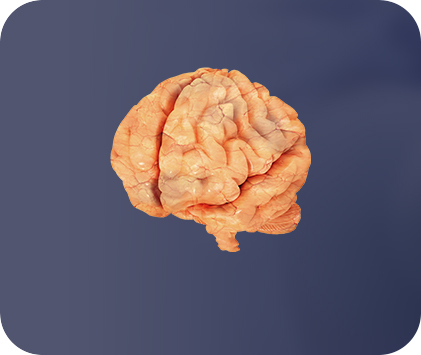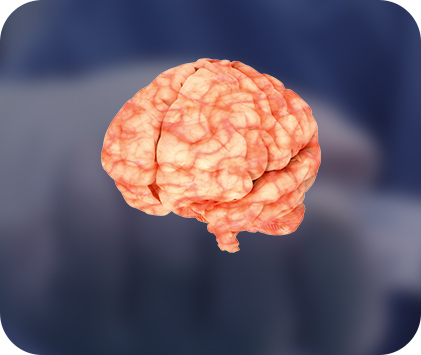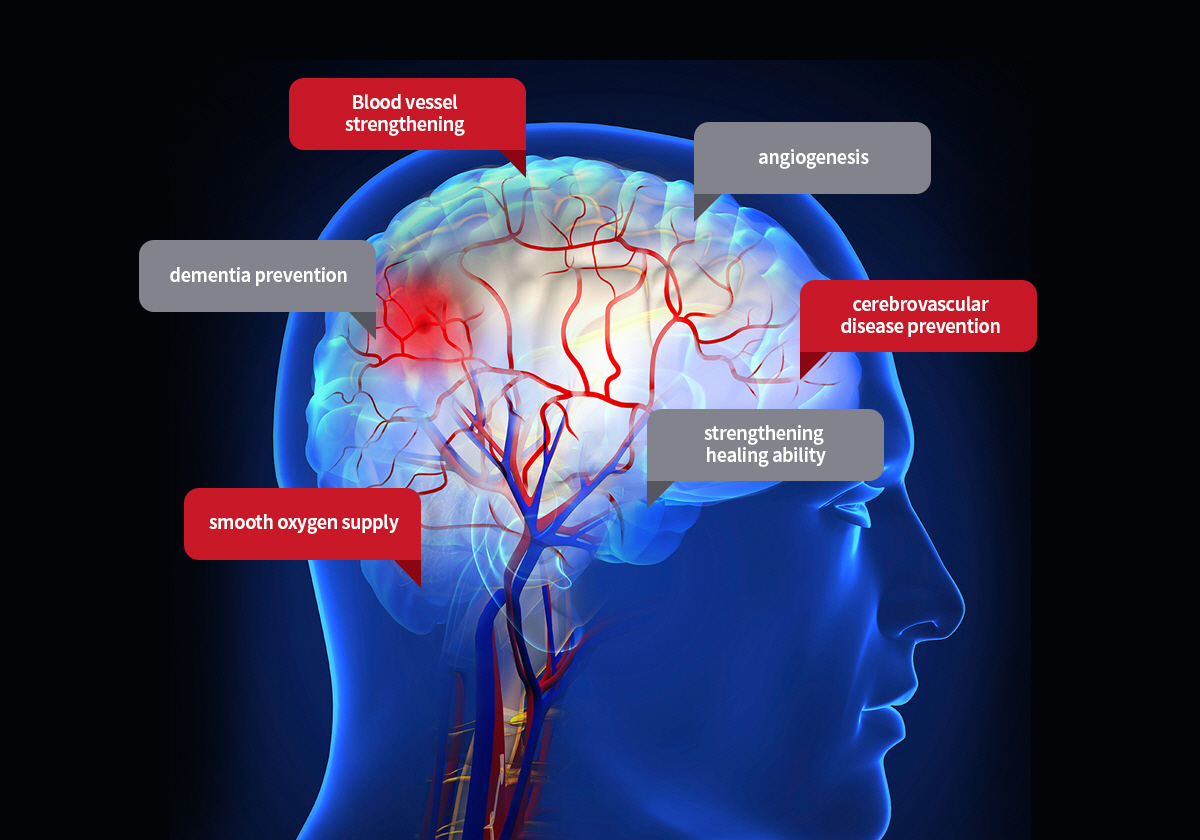Parkinson.AD · Stroke
WHY Cellpia
Stem Cell Vascular Diseases Prevention
Keep brain blood vessels healthy to prevent brain disease! Supplying sufficient blood and oxygen to the brain tissue is only possible in the strong and thick brain blood vessels. Although the brain accounts for only 2% of our body weight, but for the brain to work properly it must use 20-25% of the oxygen from the body. As it requires a large amount of oxygen, one can lose consciousness only if oxygen supply is stopped for 15 seconds after the blood supply to the brain is cut off, and in more than 4 minutes, brain cells are so damaged that they cannot be repaired. The blood vessels that supply blood to the brain are very important and proper management is essential.
Stem cell cerebrovascular- strengthening procedure
-
 Alzheimer's brain
Alzheimer's brain
-
 Healthy brain
Healthy brain
Stem cells are transplanted and induced to move into blood vessels. the treatment can be performed on the same day. It is a procedure that supplies the isolated and concentrated stem cells directly to the brain through the carotid artery without culturing. The cells travel through the blood vessels around the brain and strengthens the blood vessels, and create new blood vessels where they are needed, and help supply oxygen and nutrients smoothly.
It is effective in preventing cerebrovascular disease. Stem cells present in the bone marrow and blood of adults can be differentiated into cells of a specific tissue when necessary. The cells have an excellent regenerative capacity. Cells moved to the cerebral blood vessels regenerate cerebrovascular endothelial damage and strengthen the existing blood vessels.
-
01Vascular dementia
Dementia is caused by damage to brain tissue due to cerebrovascular disease. From an early stage, the vascular dementia is often accompanied by neurological symptoms such as unilateral paralysis, dysarthria, facial paralysis, dysphagia, unilateral vision loss, visual field disturbance, gait disturbance, urine incontinence, etc. Unlike other dementias, it can develop rapidly, so prevention is very important.
-
02Stroke
It refers to a condition in which a sudden, partial or complete impairment of brain function persists for a considerable period of time, but no other cause can be found other than cerebrovascular disease. In terms of a single disease, it is the leading cause of death in Korea, and may develop into vascular dementia.
-
03Parkinson's disease
It is the second most common degenerative brain disease after dementia. Parkinson's disease is a disease in which the nerve cells that secrete dopamine in the brain are lost. Symptoms are unilateral tremor, rigidity, tremor, and tremor at rest. Cautions should be taken about facial paralysis, swelling of the feet and ankles. In severe cases, the patient can't walk.
Why Cellpia's stem cells are special?
Once damaged, brain tissue is difficult to regenerate. Stroke such as cerebral infarction or cerebral hemorrhage is often accompanied by disability even after treatment, so it is very important to take care of your brain health regularly. Stem cells reduce abnormal nerve activity in the brain, and in turn, delays degenerative changes and aids in brain cell regeneration by BDNF (brain inducing nerve effector).







